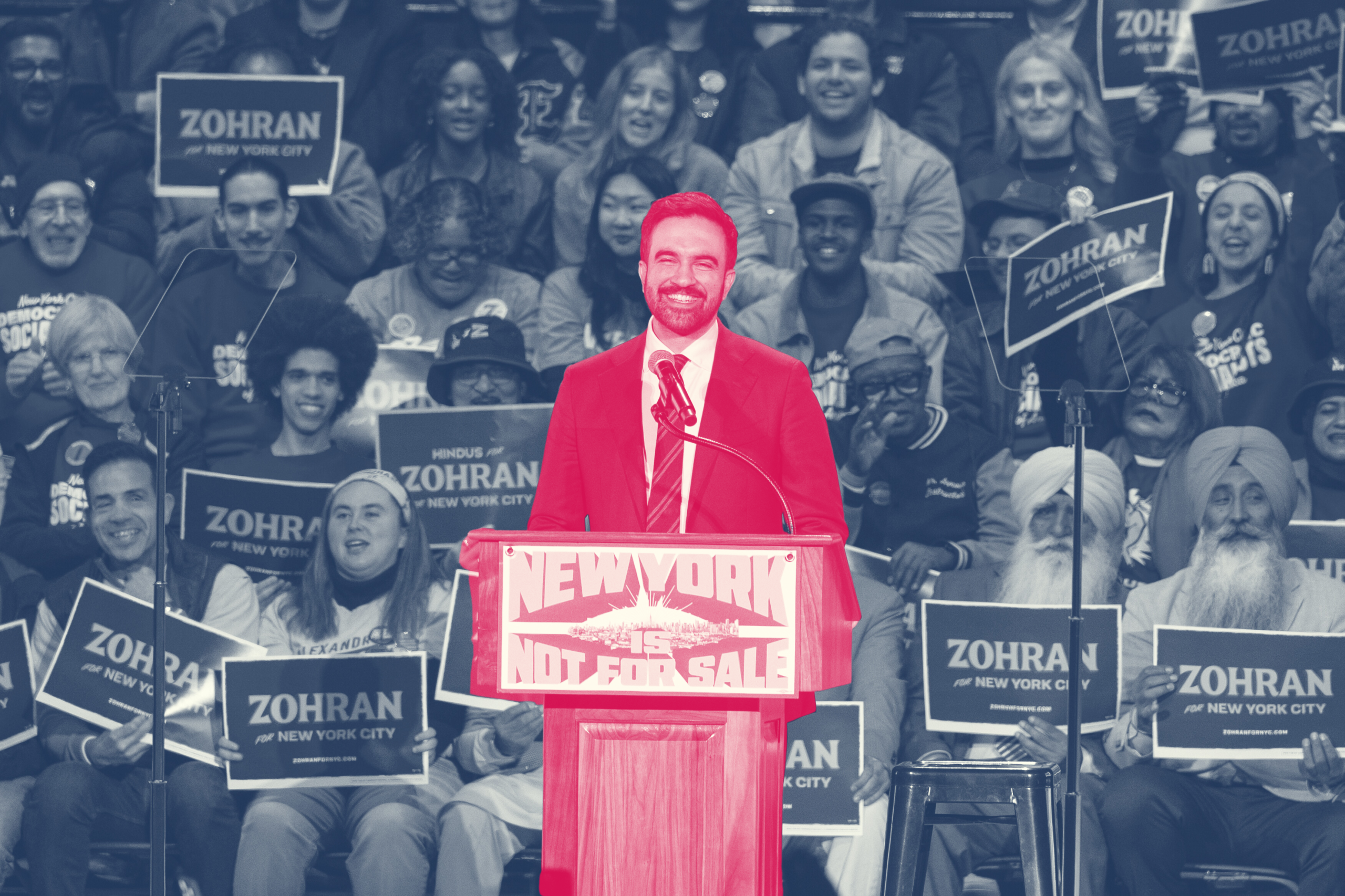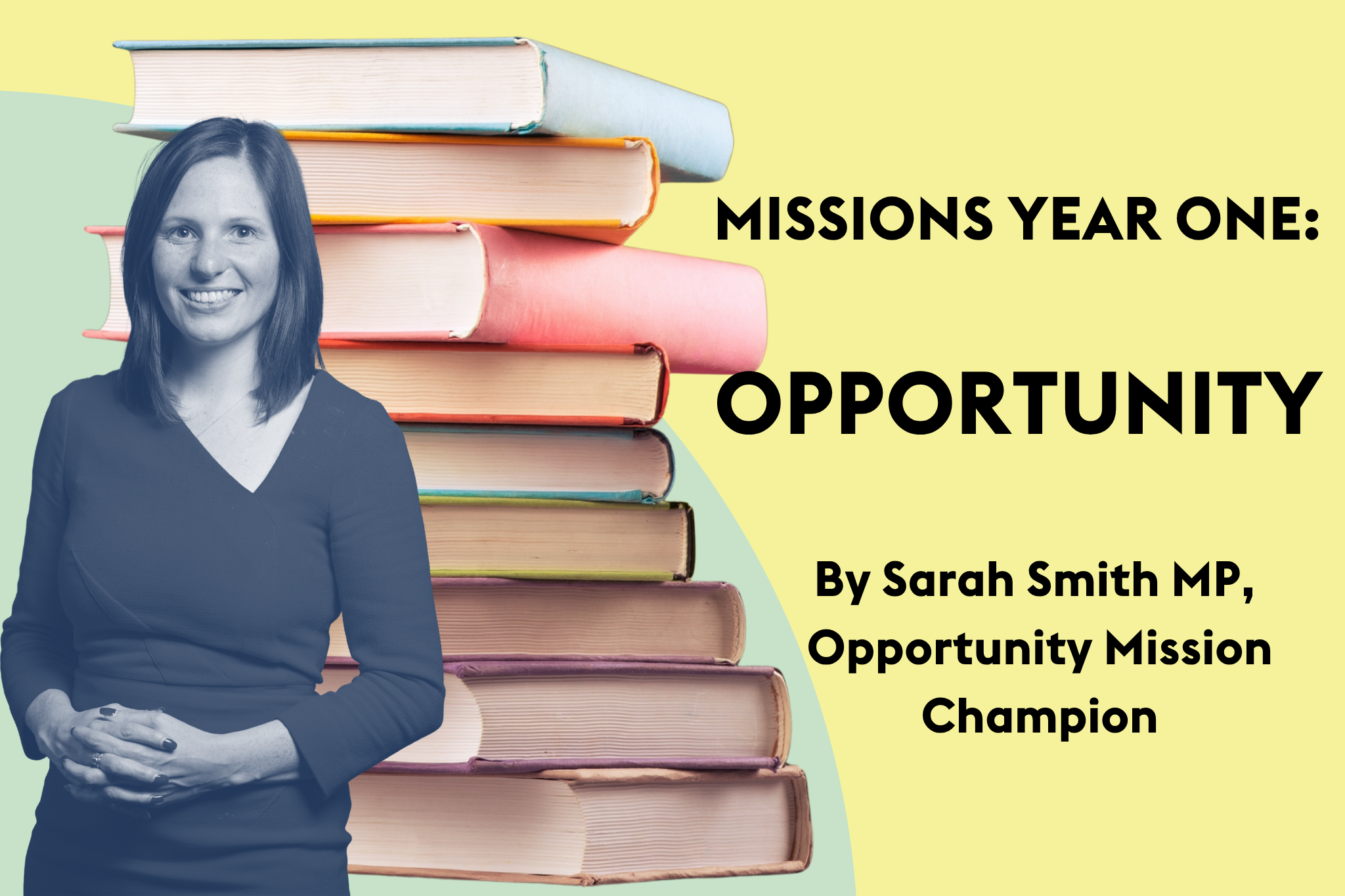

Like so many people in the Labour Party, it is my belief that the postcode where you are born should not determine your lot in life. I joined the party because I wanted to do everything I could to level the playing field for children experiencing disadvantage. I was therefore honoured to be asked to take on the role of Opportunity Mission Delivery Champion because I don’t think there is any more important mission for a government than to break down all of the barriers that children and young people face. It’s not just morally the right thing to do, it’s also the only way we unleash the potential of our great county. Even though the data is clear that coming from a background of disadvantage may determine your level of success in life, we still continue to tell our children – if you work hard, you can achieve great things. How the Government works towards ensuring this mantra is true for every child, will, I believe, define our time in office. The Government is therefore committed to dismantling barriers to opportunity to ensure that all children and young people are supported to thrive, succeed and flourish.
It is indeed an ambitious objective but we need to be ambitious for our children and young people, they deserve nothing less
14 years of Conservative led austerity has robbed young people of opportunities and spaces to thrive. Crumbling schools, community and leisure centre closures, and let us not forget the eradication of Sure Start, has left our communities feeling abandoned and our young people held back from reaching their full potential.
Evidence shows that education is the primary determinant of where children fall on the income distribution relative to their parents and therefore education has been put back at the heart of Government decision making on both priorities and investment. This Labour government will not chose to neglect the interests of children.
Over the past year, the government has launched a broad reform agenda to give children the best start in life.
Among the first steps was the introduction of free breakfast clubs and the expansion of high quality nursery and child care options for families, aimed at supporting families and improving early years development. The Government is also investing over £500 million to create a network of up to 1,000 Best Start Family Hubs across every local authority in England by 2028, where families can access a range of services all in one place.
Meanwhile, the Children’s Wellbeing and Schools Bill continues to progress through Parliament, addressing a wide range of issues including safeguarding, support for care leavers, school uniform affordability, a ‘single unique identifier’ for children, and strengthened inspection standards.
The Bill is just the start of a programme that works towards ensuring every child is achieving and thriving, as a prioritisation of a child’s wellbeing in our schools and a focus on inclusion have to become a foundational building block in our education system. This is not instead or at the expense of educational standards but to ensure we build the bedrock of stability that will allow every child to thrive educationally.
We have inherited a school system from the Conservatives that has led to too many young people leaving school without the necessary skills or access to high quality further learning, apprenticeships or support to work. That is why the Government is committed to guaranteeing each and every young person between 16-21 in England will have access to education, training or help to find a job, so they can thrive at the very start of their working life. The Government has also launched the youth strategy and is focused on expanding apprenticeships and reforming our skills offer.
A recent report by IPPR emphasises opportunity is lifelong.[1] I could not agree more. The Government recognises that unless we see the journey a child takes as integrated educational steps, then we will not create the step change we need and tackle the systematic issues holding our young people back.
Whilst much has been achieved in our first year, we of course still have a long way to go.
The latest figures available show relative rates of poverty sit at 38.6% across my constituency of Hyndburn and nearly 1 in 3 children live in absolute poverty, double the national average. In some wards, the rate is actually above 70%.
This is a devastating indictment on the previous government. Labour’s child poverty strategy will be key in our second year in power, to tackling the underlying causes of inequality and support the ongoing work of the opportunity mission.
The Government will also be publishing a School’s White Paper in the Autumn which provides the opportunity for exploring a more inclusive approach to SEND, a broader curriculum and wider enrichment opportunities. Schools need to be able to explore how to support all children to become all they are meant to be and we need to reframe SEND provision within a positive mission to ensure all children are valued and supported to learn.
The hub model and the Better Future Funds will also develop in this Parliament as we seek to encourage new models of integrated practice with health and education from conception to school.
The Government’s devolution agenda and focus on neighbourhoods is also a priority and will enable those working with young people – whether schools, colleges, universities, local and national government, local agencies, employers, the NHS or other local private, voluntary and social enterprise groups – to innovate and drive up standards in a way that meets the needs of their children and young people in the very communities they live, play and learn.
The Government is quite rightly delivering record levels of capital investment into public services, reversing historic underinvestment. Going forward, this will be matched by an ambitious programme of public service reform to transform services, invest in prevention and push power to local areas.
Children having the best start in life should be a right, not a privilege and the action this Government is taking to embed this belief into how we do Government, has the real potential to transform lives. It’s the reason we do what we do.
Mission-driven government means raising our sights as a nation and focusing on ambitious, measurable, long-term objectives that provide a driving sense of purpose for the country. But it does mean a new way of doing government that is more joined up, pushes power out to communities and harnesses new technology, all with one aim in mind – to put the country back in the service of working people.
I am excited to see this approach develop as Government is at its best when working in partnership with business, trade unions, civil society, faith groups, and communities. Children growing up in our country deserve the best start in life and transition to a future full of potential, nothing less and by working together to break down barriers to opportunity, we can make this a reality.
For more on how missions work see From Instruction to Innovation: Delivering Labour’s Five Missions in 2025.
Footnotes:
[1] ‘Towards universal opportunity for young people’, IPPR, 8 July 2025, p.6.
Sarah Smith MP is the Member of Parliament for Hyndburn and is the Government's Opportunity Mission Champion
View all posts